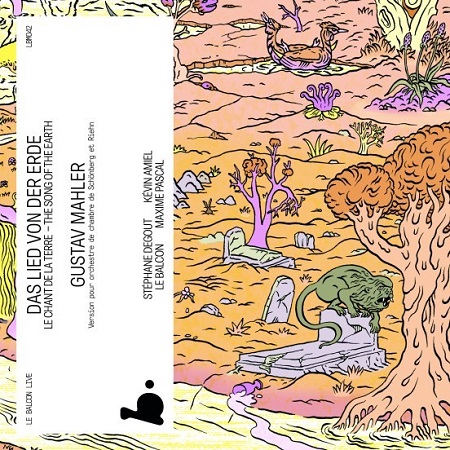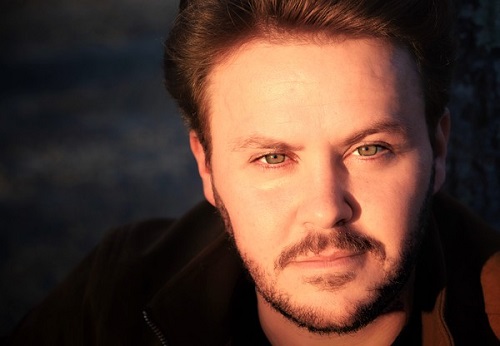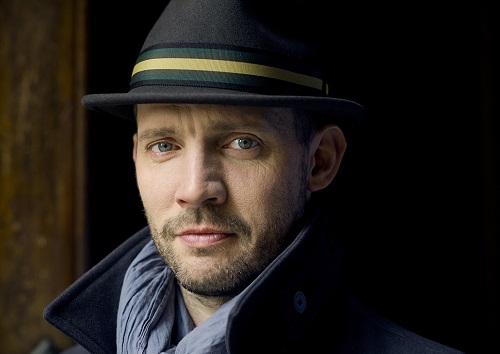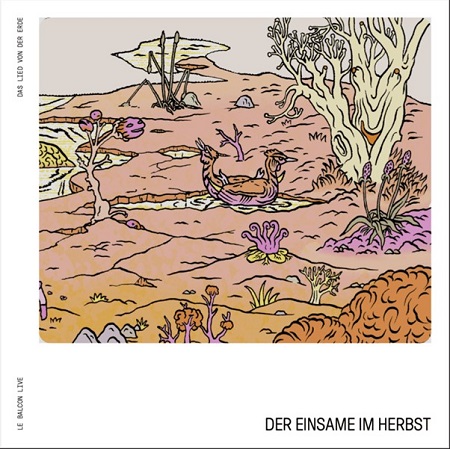Performances and recordings of Rainer Riehn’s 1983 chamber-ensemble arrangement of Mahler’s symphony-cum-song-cycle, Das Lied von der Erde, seem quite common these days – perhaps even more so than the original orchestral version. Perhaps it’s a question of economics as much as aesthetics. Riehn completed the reduction that Schoenberg began producing in 1920, so that a work the latter loved could be performed at his Society for Private Music Performance in Vienna, but he left the scaled-down score unfinished when the Society collapsed the following year. Schoenberg had ‘detoxed’ Mahler’s epic forces, rearranging the music for just fifteen players including piano and harmonium, to which Riehn added celesta.
‘I don’t think I’ve done anything more personal so far.’ So Mahler wrote to Bruno Walter, and there is something ‘quasi-testimonial’ – though perhaps one can say that of all Mahler? – about his settings of poems that explore all of human experience: love, hedonism, frailty, death, and the very life and ending of the earth itself. Mahler started composing the cycle in 1908, one year after the death of his daughter Maria and at a time when he had been diagnosed with a life-threatening heart condition. “Mein Herz ist müde – My heart is weary,” says the poet-speaker in ‘Der Einsame im Herbst’ (The lonely man in autumn) – the second of the six poems of tenderness and doubt, laughter and melancholy, that Mahler selected from Die chinesische Flöte, an anthology of Chinese poems from the eighth and ninth centuries prepared by Hans Bethge (1879-1946).

This performance by Maxime Pascal’s chamber ensemble, Le balcon, was recorded live at the Basilique de Saint-Denis during the Festival de Saint-Denis on 2 July 2020, without an audience, owing to pandemic restrictions. The gothic Basilica is the final resting place of the kings and queens of France and contains over 70 funerary sculptures and monuments dating from the 12th to the 16th centuries. A fittingly ‘divine’ setting, perhaps, but a rather roomy one for an intimate chamber work. My ears were startled by the resonance and closeness of the horn’s fanfare-like invitation and the clamorous response at the opening of ‘Das Trinklied vom Jammer der Erde’ (Drinking song of the sorrow of the earth), and even after I’d turned the volume down it took a while to adjust to the vibrancy.
There is no Second Viennese School sparseness here, rather a flood of sound – or rather, sounds, so present are the individual voices – which has a sometimes overwhelmingly visceral impact and produces an effect that is truly ‘symphonic’. But, if those instrumental voices at times seem to compete with each other for pre-eminence – as in the interlude in the middle of ‘Das Trinklied’, where You-Jung Han’s glistening violin solo seems swallowed up by the surrounding kaleidoscope – then musical director Maxime Pascal garners enormous drive and energy, and controls it with imagination and feeling. The voices are generally integrated in the web of weaving lines but are given room to bloom as and when needed.

Tenor Kévin Amiel doesn’t fall at Mahler’s hurdles. He has the strength and the staying power. But, to my ear he sounds as if he is coming at the notes from underneath, rather than hitting them squarely on. He does work hard to capture the spirit of the text, though. In the first drinking song, the repeated line, “Dunkel ist das Leben, ist der Tod” (Dark is life, is death) makes its mark, and the almost existential climaxes of the final two verses are hard to bear, as they should be: “Du aber, Mensch, wie lang lebst denn du?” (But you, Man, how long will you live then?) And, there is a terrifying bitterness in the image of the “rotten triviality of the earth” (An all dem morschen Tande dieser Erde!), as well as hedonistic abandon in the call to drink and empty the golden goblet to the bottom: “Jetzt nehm den Wein! … Leer eure goldnen Becher zu Grund!”
The instruments preface ‘Von der Jugend’ (Of Youth) with freshness – there’s lovely bubbling vigour here, as well as a gentle touch of swagger, and the pentatonic orient is charmingly evoked. But, Amiel sometimes sounds a bit too forthright, and there’s not enough dreamy wonder and ‘otherness’ when the poet-speaker gazes at the small pond’s still surface upon which “zeigt sich alles Wunderlich im Spiegelbilde” (all things appear strangely mirrored). ‘Der Trunkene im Frühling’ (The drunkard in spring) is somehow both woozily lazy and sparklingly effervescent – this is superb instrumental playing, meticulous and characterful – and as he surfs the peaks with panache, Amiel evokes a winning confidence born of inebriation and love of life.

Some listeners might prefer a mezzo soprano to a baritone, but Stéphane Degout is a fine singer and interpreter, and his beautiful tone gives ‘Der Einsame im Herbst’ a captivating and heart-touching earnestness. At the start, the violin and oboe, nudged by the horn, draw one beside the lake on which the autumn mists linger, the instrumentalists’ circling figures conjuring the stillness of the scene. Degout conveys both vulnerability and, strengthening his tone, resignation: “Bald werden die verwelkten, goldnen Blätter/ Der Lotosblüten auf dem Wasser ziehn.” (Soon the withered golden petals of the lotus-flower will drift on the water.)
And, there is assertiveness in the avowal, “Ich komm’ zu dir, traute Ruhestätte,/ Ja, gib mir Ruh, ich hab Erquickung not!” (I come to you, beloved resting-place, – You, give me rest, I need to be refreshed!), the baritone’s declaration seeming to be propelled by the instrumental voices, truly within their midst. The magnitude of feeling, and passion of the rhetoric, at the close, is encompassing too, as the poet-speaker wonders whether the ’sun of love’ will ever shine again and dry his tears, the longed-for heat glowing in Degout’s impassioned phrases. ‘Von der Schönheit’ (Of beauty) brings lightness and joy, though, and Pascal summons a pleasing momentum here, whipping up a whirling cloud of sensuality, and achieving precise textual clarity, the individual instrumental voices contributing more holistically to the scene-painting and character-drawing, the movement closing with soft voluptuousness.

And, then, there is ‘Der Abschied’, Mahler’s farewell, somehow both monumental and intimate. Degout’s sensitive enunciation of the German text and impeccable line are beautifully complemented by the flute’s improvisatory arabesques. The joyfulness of the visions feels so real: “O sieh! wie eine Silberbarke schwebt/ Der Mond am blauen Himmelssee herauf.” (O look! Like a silver bark, The moon floats up the sky’s blue lake). And, cor anglais, horn and solo violin conjure a tactile pastoral world, but it is one which seems to know its own transience. Pascal doesn’t let things linger and the music pushes on towards radiant climaxes, “O Schönheit, O ewigen Liebens – Lebens – trunkne Welt!” (O beauty! O eternal love – eternal, life intoxicated world), Degout’s baritone soaring with wonderful expansiveness. Pascal shapes the long journey through diverse landscapes with insight, but for me the concluding vision of the earth which everywhere blooms with spring over-saturates one’s senses. Degout is magnificent but there is simply ‘too much’ of everything else to look through the singer’s eyes. Some might find, though, that the primeval flood of sound is just what Mahler intended. And, when those final “ewig”s come, though they are not the most ethereal, they do console and soothe, stroked by the celesta’s angelic ring.
The presentation is deluxe. The disc box, decorated with a colourful, almost Bosch-like illustration by Raphaël Serres, contains a booklet with an eloquent article by Thomas Vernet (Director of the Department of Libraries and Resources at the Royaumont Foundation), an interview with Maxime Pascal, and black-and-white rehearsal photographs; six illustrated individual lyrics booklets, with the poem texts in German, French and English; and an artwork which brings together Serres’ images for the six songs.
This is a stirring performance, and the recorded sound embraces one in Mahler’s world, but the opportunities for the interpretative subtleties that the chamber forces offer are not always taken.
Claire Seymour
Gustav Mahler: Das Lied von der Erde (1907). Chamber orchestra version by Arnold Schoenberg (1920), completed by Rainer Riehn (1983).
Le balcon: Maxime Pascal (music direction), Kévin Amiel (tenor), Stéphane Degout (baritone), Claire Luquiens (flute), Ye Chang Jung (oboe/cor anglais), Iris Zerdoud (clarinet), Julien Abbes (bassoon), Joël Lasry (horn), Alphonse Cemin (piano), Sarah Kim (harmonium and celesta), François-Xavier Plancqueel & Akino Kamiya (pianos), You-Jung Han & Valentin Broucke (violins), Andrei Malakhov (viola), Askar Ishangaliyev (cello), Simon Guidicelli (double bass)
b.records LBM042 [60:03]